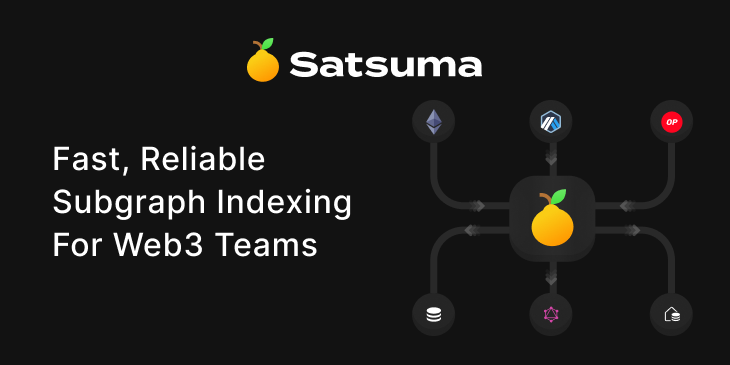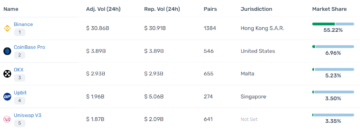GM Defiers!
The US Treasury Department says the growing use of cryptocurrency to pay for goods and services is a threat to government attempts to limit money laundering, and argues that most DeFi protocols should be regulated as financial institutions. Layer 2 network Arbitrum is attempting to salvage this week’s governance debacle with a set of new proposals promising increased transparency and oversight. Meanwhile, the Euler hacker has returned nearly all the stolen funds, and we’ve got some exclusive insights from a negotiator involved in the recovery. Finally, we dive into the lofty valuations of Layer 2 tokens and ask investors if they’re justified.
✍️ In today’s newsletter:
- Treasury Report On Criminal Use Of DeFi Argues Most Protocols Are Subject to Bank Secrecy Act
- Arbitrum Amends Foundation Proposal After Failed Vote
- Exclusive Interview With Negotiator Who Helped Euler Recover $230M
🌟 Premium:
- Do Rollup Tokens’ Use-cases Justify Their Valuations?
🙏 Sponsored:
📈 Markets in last 24 hrs:
BTC
Bitcoin
$27,908
-0.450%
ETH
Ether
$1,853.6
-1.00%
MKR
Maker
$690
-4.03%
SPY
S&P500
$408.76
+0.360%
UNI
Uniswap
$6.011
-1.07%
LDO
Lido DAO
$2.533
-2.43%
🎬 WATCH
Watch our video on the implications of $33B worth of ETH being unlocked in a week, and our podcast with Carl and Trent of the Ethereum Foundation

Regulation
Treasury: ZK Proofs Can Be Boon Or Bane Of AML Compliance
TLDR A new report by the US Treasury Department highlights the growing use of cryptocurrency for payments as a threat to AML efforts and suggests the use of privacy-enhancing tech, such as zero-knowledge proofs, to verify compliance with anti-money laundering regulations without broadcasting personal information.
SO WHAT The report also noted that most self-proclaimed DeFi businesses in the U.S. — even those that are truly decentralized, with little to no ability to modify or control a protocol after its release — are financial institutions subject to the Bank Secrecy Act and, in turn, anti-money laundering obligations.
THANKING OUR NEWSLETTER SPONSORS
| Newsletter continues below |
 |
Get paid for doing what’s good for you. MEV Blocker protects you from sandwich attacks and frontrunning, and pays you when others backrun your transactions. And it’s completely free to use. Add MEV Blocker to your wallet today. It’s a no-brainer. |
 |
Tripple Card – the first ever truly decentralized Web3 credit card. Your keys, your crypto, your cash. No wallet creation needed – connect your existing crypto wallet and instantly use it for your everyday needs. |
 |
Satsuma is a subgraph hosting platform that helps dApps ship faster with 99.9% uptime, 2x+ faster indexing, and more. Decentraland, Aragon, and GMX are happy users. Sign up today! |

Sponsored Post
Satsuma – Fast, Reliable Subgraph Indexing for Web3 Teams
Are you a developer using subgraphs or other blockchain indexing tools for your dApp? Do you currently struggle with downtime & slow sync times? Or, are you concerned about the sunset of the Hosted Service?
Satsuma is a subgraph hosting platform that helps dApps ship faster with 99.9% uptime, 2x+ faster indexing, and better devtools like versioning, direct database access, and performance insights.
Projects like Decentraland, Aragon, GMX, Lyra, and Kwenta have switched over and started shipping features faster with improved developer productivity & happiness.
“Satsuma has returned a huge amount of development time to the team to focus on product and gives us certainty in our infrastructure.” – Nathan, Head of Eng at Syndicate
It takes < 5 minutes to deploy your subgraphs to Satsuma and swap over to our drop-in GraphQL endpoints. Follow us on Twitter and sign up today!
DAO Governance
Arbitrum Amends Foundation Proposal After Failed Vote
TLDR Arbitrum, the leading Ethereum Layer 2 network, has proposed new measures to limit the spending capabilities of its Foundation after the failure of its first governance proposal. The new proposals include a token vesting schedule, operational expenses, and ecosystem funding initiatives, along with outlining the Foundation’s $36M annual budget.
SO WHAT While many applauded the move as a step in the right direction, some community members are still skeptical about the proposed budget, demanding a more detailed breakdown of payroll and expenses.
Exclusive Interview
Euler Hacker Was ‘Just a Regular Guy’
TLDR A pseudonymous independent security researcher named Ogle helped to negotiate the return of over $200M in stolen crypto, and in an interview with The Defiant, shared information about the “wacky” hacker, the negotiation process, and mistakes that companies often make when trying to recover stolen crypto.
SO WHAT Euler has recovered almost all the money stolen in the hack and claimed it as one of the largest recoveries in DeFi history. The hacker was not a sophisticated group or state-backed actor, but rather just an individual who saw an opportunity.
Premium Story
What’s Governance Worth? Ethereum Scaling Tokens Say Billions
TLDR The market value of two of the biggest Ethereum scaling tokens, ARB and OP, has surpassed $2 billion collectively. However, the primary use case of these tokens is governance, as they neither secure the scaling solutions’ networks nor do users pay for transaction fees denominated in them.
SO WHAT Investors are questioning the billion-dollar valuations of these governance tokens as their value proposition is unclear. With the potential for increased competition among Layer 2s, teams will be under even more pressure to substantiate the value of their tokens. Rollups may already be profitable, but how tokens accrue value from that profit is still unclear.
Sponsored Post

Consensus 2023 by CoinDesk is crypto’s largest, longest-running and most influential event exploring all sides of DeFi, blockchain, Web3, the metaverse and beyond. Thousands of investors, entrepreneurs, founders, policymakers and builders will converge on Austin, Texas to take on some of crypto and DeFi’s biggest challenges. Topics covered include crypto’s banking problems, policy and regulation, blockchain innovation and so much more.
Join Consensus 2023 to take part in industry-building workshops, listen to hard-hitting panel discussions, network with industry leaders and so much more.
Readers of The Defiant can use code DEFI25 for 25% off registration.
🔎 FROM OUR REPORTERS
🌍 ELSEWHERE
- SEO Powered Content & PR Distribution. Get Amplified Today.
- Platoblockchain. Web3 Metaverse Intelligence. Knowledge Amplified. Access Here.
- Source: https://thedefiant.io/defi-daily-treasury-defi-risk-report/
- :is
- $UP
- 1
- 2 Tokens
- 2023
- 7
- a
- ability
- About
- access
- Act
- After
- All
- already
- AML
- among
- amount
- and
- annual
- anti-money laundering
- aragon
- arbitrum
- ARE
- Argues
- AS
- At
- Attacks
- attempting
- Attempts
- austin
- background
- Bank
- bank secrecy act
- Banking
- banner
- BE
- being
- below
- Better
- Beyond
- Biggest
- Billion
- blockchain
- blockchain innovation
- border
- Breakdown
- Broadcasting
- budget
- builders
- businesses
- by
- CAN
- capabilities
- card
- case
- Cash
- certainty
- challenges
- claimed
- code
- Coindesk
- collectively
- community
- Companies
- competition
- completely
- compliance
- concerned
- Connect
- Consensus
- considered
- continues
- control
- converge
- covered
- creation
- credit
- credit card
- Criminal
- crypto
- Crypto wallet
- cryptocurrency
- Currently
- dapp
- DApps
- Dark
- Database
- Decentraland
- decentralized
- DeFi
- DeFi protocols
- demanding
- Denominated
- Department
- deploy
- detailed
- Developer
- Development
- direct
- direction
- discussions
- doing
- downtime
- ecosystem
- efforts
- entrepreneurs
- ETH
- Ether (ETH)
- ethereum
- Ethereum Layer 2
- ethereum scaling
- Even
- Event
- EVER
- everyday
- Exclusive
- existing
- expenses
- Exploring
- Failed
- Failure
- FAST
- faster
- Features
- Fees
- Finally
- financial
- Financial institutions
- First
- Focus
- follow
- For
- Foundation
- founders
- Free
- from
- frontrunning
- funding
- funds
- gives
- GMX
- good
- goods
- governance
- governance proposal
- Government
- graphql
- Group
- Growing
- hack
- hacker
- happy
- Have
- head
- helped
- helps
- highlights
- history
- hosted
- hosting
- How
- However
- HTTPS
- huge
- implications
- improved
- in
- include
- increased
- independent
- individual
- industry
- Influential
- information
- Infrastructure
- initiatives
- Innovation
- insights
- institutions
- Interview
- Investors
- involved
- IT
- ITS
- jpg
- keys
- large
- largest
- Last
- Laundering
- layer
- Layer 2
- Layer 2s
- leaders
- leading
- like
- LIMIT
- little
- lofty
- make
- many
- Market
- market value
- Markets
- Meanwhile
- Members
- Metaverse
- mistakes
- modify
- money
- Money Laundering
- money stolen
- more
- most
- move
- Named
- nearly
- needed
- needs
- Neither
- network
- networks
- New
- Newsletter
- noted
- obligations
- of
- on
- ONE
- OP
- operational
- Opportunity
- Other
- Others
- Oversight
- paid
- panel
- panel discussions
- part
- Pay
- payments
- Payroll
- pays
- performance
- personal
- personal information
- platform
- plato
- Plato Data Intelligence
- PlatoData
- policy
- Policy and Regulation
- policymakers
- Post
- potential
- Premium
- pressure
- primary
- problems
- process
- Product
- productivity
- Profit
- profitable
- promising
- proofs
- proposal
- Proposals
- proposed
- proposition
- protocol
- protocols
- rather
- Recover
- recovery
- register
- Registration
- regular
- regulated
- Regulation
- regulations
- release
- reliable
- report
- researcher
- return
- rollup
- Rollups
- s
- sandwich attacks
- says
- scaling
- schedule
- secure
- security
- service
- Services
- set
- shared
- Shipping
- should
- Sides
- skeptical
- slow
- So
- some
- sophisticated
- Spending
- Sponsored
- square
- started
- Step
- Still
- stolen
- stolen funds
- Struggle
- subgraph
- subgraphs
- subject
- such
- Sunset
- surpassed
- switched
- Take
- takes
- team
- teams
- tech
- texas
- that
- The
- The Defiant
- The Metaverse
- their
- Them
- These
- thousands
- threat
- time
- times
- to
- today
- today’s
- token
- Tokens
- tools
- Topics
- transaction
- Transaction Fees
- Transactions
- Transparency
- treasury
- Treasury Department
- TURN
- u.s.
- under
- uptime
- us
- US Treasury
- Us Treasury Department
- use
- use case
- use-cases
- users
- Valuations
- value
- verify
- Vesting
- Wallet
- Web3
- week
- while
- WHO
- will
- with
- without
- Workshops
- worth
- Your
- youtube
- zephyrnet
- zero-knowledge
- ZK












